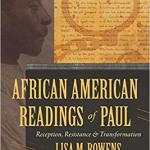Mary DeMuth
We Too: How the Church can Respond Redemptively to the Sexual Abuse Crisis
Eugene, OR: Harvest House, 2019.
Available at Harvest House and Koorong
By Laura Thierry
There are few things that have so shattered the church’s witness and wounded Christ’s sheep as sexual abuse within the church. As devastating facts continue to pour forth and dams of secrecy finally burst, the church continues to struggle to know how to respond well. It’s easy to be repelled, blame others, or freak out with respect to the incredible number of professional standards needing to be put in place in order to minister within a post-abuse world. Its harder to take a deep look at God’s word, to share personal experience, and to prophetically and hopefully call God’s people to be Christ in the midst of the pain. And it is this harder path that Mary DeMuth takes in this necessary and timely book.
DeMuth writes from the place at which her own heart-rending experience meets her deep love for the church. While not shying away from the hard fact that “the evangelical church has not done a good job of loving those broken by stories of sexual assault, discrimination, and harassment” (19), she consistently responds with love-shaped lament and hope for true healing. With “grief [that] has morphed into a holy urgency” (15), she seeks scripturally-sound and pastorally-sensitive paths forward.
Demuth’s book spans three sections: history, present, and future. Part one begins with a courageous survey of the Old Testament stories of rape and abuse: the harrowing tales of shame and pain in the lives of Tamar, Dinah, Bathsheba, and many more. All these women, seen in the light of their place in Matthew’s genealogy remind us that even in the midst of the shattering of sexual abuse, their stories still matter. DeMuth moves into the story of Jesus, with a brilliant chapter on Jesus’ heart for restorative justice. She reflects, “I fear we have lost the justice side of Jesus. We embrace the image of a Jesus who glosses over perpetration with a grace Band-Aid, and we shy away from the Jesus who asks for radical repentance and restoration” (55).
DeMuth continues with a brief though illuminating survey of how sexual abuse has been viewed and dealt with throughout the church’s history. It is a story with some words of fulsome and Christlike justice (see Basil the Great), and yet, sadly, by and large, she concludes that “to trace the history of the church’s response to sexual abuse through the centuries is to trace the handiwork of Satan, who is alive and well and wants nothing more than to destroy us all.” (67).
In part two, DeMuth provides a distressing jigsaw puzzle of the many elements that converge to make sexual abuse within the church the horror that it is. The putrefying effects of secret-keeping and shame, the pervasiveness of bad theology that fails to recognize the incomparable worth of image-bearers, underestimates the horrid insidiousness of evil, and overlooks God’s commitment to justice. She then analyses the prevalence of porn within the church, and considers the effect it has on the church’s resistance to God’s hatred of sexual abuse. A heavy, but particually helpful, chapter followers, surveying the practices and characteristics of predators. Finally, she concludes with a call of wakeup to a passive church: “A lethargic church that favours perpetrators to victims is an anaemic one, but even more than that, it is an evil one. I write these words not as an angry survivor, but as one who has experienced the best the church has to offer. I healed because people in the church dared to listen to my story and pray for me. I write these words not to indict the church, but to rouse it to be better. I love the church” (133). And that she truly does, as part three’s hopeful tracking of constructive ways forward demonstrates.
All in all, We Too is not an easy read, but it is a very necessary one. It laments the pain that has occurred, and, with a heart shaped by the justice of Christ, and a determined hope of the power of the gospel to provide healing, it courageously imagines what the Church might yet become. As churches everywhere must face the issues associated with our disgraceful history, DeMuth’s story is a gift—one that should be received and listened too by church leaders everywhere. As the Church works to rewrite policies, train people in professional standards, and listen to those who have been shattered by the abuse within its walls, DeMuth’s book is a precious draught of hard reality, shot through with Christ-shaped hope. A highly recommended read.
Laura Thierry a PhD candidate at Ridley College, researching medieval hagiography, Christology, and theology of the body.












